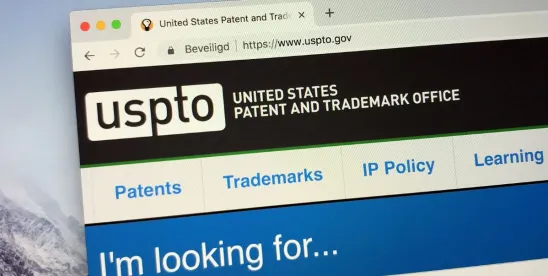Recently, the United States Patent and Trademark Office (“USPTO”) issued a series of discretionary denials of inter partes review (IPR) petitions, based on a new factor, the “settled expectations” of the Patent Owner.
On June 6, 2025, Acting Director Coke Stewart of the USPTO issued a precedential decision in iRhythm Technologies v. Welch Allyn, Inc. iRhythm Technologies had filed five IPR petitions challenging the validity of four patents assigned to Welch Allyn. One of the four patents, US patent No. 8, 214, 007 (the ‘007 patent) had issued in 2012. iRhythm Technologies included the application of the ‘007 patent in an information disclosure statement (IDS) submitted to USPTO in 2013, and then included the ‘007 patent in another IDS in 2015. Though several other factors weighed against discretional denial, the Acting Director found the patent owner’s “settled expectations” outweighed the other factors: “Petitioner’s awareness of Patent Owner’s applications and failure to seek early review of the patents favors denial and outweighs the above-discussed considerations.”
Shortly thereafter, on June 12, 2025, the Acting Director issued another precedential decision in Tessell, Inc., v. Nutanix, Inc. Tessell challenged the validity of U.S. Patent No. 11,010,336 (“the ’336 patent”) assigned to Nutanix. Tessell was founded by two of five inventors named on the ’336 patent and subsequently hired two other inventors of the ’336 patent. Nutanix argued that “after Nutanix sued the inventors’ new company ,,, Petitioner asserts that the same ’336 patent that the inventors previously touted and profited from is invalid. Petitioner’s challenge, which is directly counter to the well-settled expectations of the parties that the ’336 patent is valid, should be discretionarily denied.” The Acting Director Patent noted that Nutanix's equity arguments were persuasive, and concluded “it is not an appropriate use of Office resources where the inventors applied for and were issued a patent, but… now advocate for its unpatentability.” The Acting Director denied the IPR institution under the equitable principle of “unfair dealings.”
On June 18, 2025, the Acting Director again applied the “settled expectations” factor in DABICO Airport Solutions Inc. v. AXA Power APS. The Acting director issued a discretional denial based on “the challenged patent has been in force almost eight years, creating settled expectations” and “Petitioner does not provide any persuasive reasoning why an inter partes review is an appropriate use of Office resources.” The DABICO decision thus clarified that actual notice of a patent or of possible infringement is not necessary to create “settled expectations.”
Best Practices for IPR Petitioners and Patent owners
- The USPTO sent a clear message encouraging early challenges under post grant review (PGR) practice. Petitioners should prioritize instituting a PGR within nine months after a potentially problematic patent is issued. This is particularly important in highly competitive and litigious industry segments. If it is too late to file a PGR, companies should consider filing IPR petitions as soon as feasible upon learning of a potentially problematic patent and not rely on the statutory deadline of one year after service of a complaint.
- Patent owners requesting discretionary denials should press available arguments addressing the new “settled expectations” factor, including unfair dealings and settled expectations.
- In addition, IPR petitioners should explicitly explain why an inter partes review is an appropriate use of Office resources in the Petition. In particular, IPR petitioners should explicitly address the inapplicability of “settled expectations” arguments.





 />i
/>i
